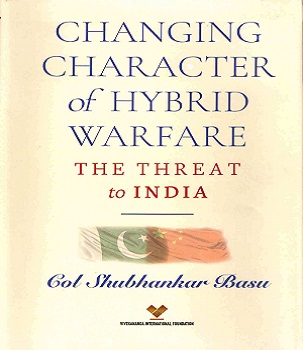India’s security dilemmas are complex, with two hostile powers on its frontiers and a large number of internal fault lines which are vulnerable and have been exploited by the adversaries in the past. The Indian Army Doctrine of 2018 defines ‘the collusive external threat from adversaries as well as the internal instability due to state/non-state sponsored proxy war’ as the primary security challenge to India. It further amplifies the changing character of war as ‘wars will be hybrid in nature, a blend of conventional and unconventional, with focus increasingly shifting to multi domain warfare varying from non-contact to contact warfare’. In a nutshell therefore hybrid war is among the primary areas of focus for the Indian military today.
‘Changing Character of Hybrid War: The Threat to India’ examines the transformation in hybrid warfare and analyses its threat to India. It begins with an analysis of the doctrine adopted by the US, Russia, China, UK & NATO in dealing with this threat. Thereafter it illuminates the emerging characteristics of hybrid war by exploring certain case studies from major contemporary conflicts. India`s primary challenge in this area is of a collusive hybrid war from Pakistan and China. Accordingly, the book analyses the strategic culture of Pakistan Army and transformation of the People`s Liberation Army (PLA) to ascertain their views on hybrid warfare.
The book argues that India needs to build deterrence against the hybrid threat. It also recommends measures for capability building in a Hybrid Warfare scenario at National Level. The book will be of great interest for practitioners, analysts and is a must read for young officers in uniform to help them appreciate an important dimension of future warfare.











Post new comment